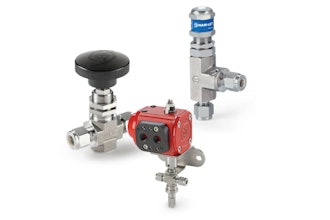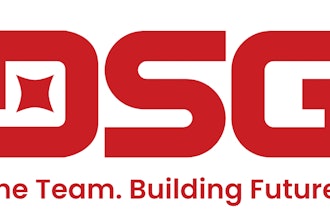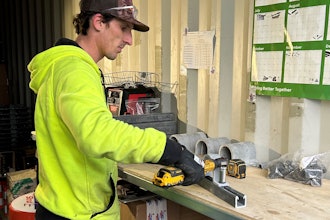
This article appeared in Industrial Distribution's May/June print issue. To view the digital edition, click here.
As a distributor, this example is not hard to imagine: at a manufacturer/distributor off-site social event, one of the manufacturer officers becomes inebriated, and makes sordid sexual advances toward one of your female employees. The employee attempts to brush it off, but after the dust settles, she is visibly disturbed and you,as a manager, principal and/or officer, learn not only of the incident but also, that physical contact was made with your employee. Worse, however, is that the manufacturer’s employee is scheduled for a site tour in two weeks, and, absent changes, will interact with the aggrieved employee.
What as an employer do you do? Is this a crime? Do you have, to report the matter, to the police? Is this scenario any different if the matter had taken place on your premises and involved a co-worker or managerial employee and the female employee?
In short, the answers to the questions posed are relatively straight forward. Under most state law, employers may be liable for the actionable third-party harassment of its employees where it ratifies or condones the conduct by failing to investigate and remedy it after learning of it. Further, while an employer generally has no duty to protect an employee from the criminal conduct of a third-person, an employer has a duty to use ordinary care to provide its employees with a reasonably safe workplace and may be liable when it fails to warn its employee of an unreasonable risk of harm involved in the employment.
In the example above, the distributor would only have exposure for the third-party assault and/or battery if it knew of the manufacturer employee’s propensity to engage in the conduct at hand, and failed to take steps to protect its employees. Likewise, the distributor would not likely have any obligation to report the incident to the authorities, but counseling the employee on her right to do so (and documenting that counseling in a private memorandum) would likely be wise (even if not a legal obligation). Finally, the distributor should, legally, investigate the incident, and ensure that the employee is protected on a going-forward basis. While the investigation could be slightly different – witnesses might exist (e.g., from the manufacturer or even restaurant staff) who can’t effectively be interviewed – the obligation remains the same.
How the incident is handled between executives of the manufacturer and distributor is a different issue, but one that will be driven, in part, by the ultimate decisions. For example, after investigation, the distributor might well conclude that it needs to notify at least the manufacturer employee involved, and advise him that while it was totally taken by surprise by the conduct in question, it not only can’t happen again, but protocols need to be implemented for situations where he and the female distributor employee might have to interact in the future (e.g., the upcoming site visit).
Regardless of whether the complaint comes from internal conduct and/or external third-party conduct, there are key points for any investigation of this nature (not necessarily limited to claims or incidents of sexual harassment but any improper conduct) that distributors, as employers, should always keep in mind:
-
Interview the complaining employee or other key witnesses. Obtain all pertinent details, including the identity of other (potential) witnesses, and what other documents or information would be corroborative (or not) of the underlying incident.
-
Advise complaining employees that any information will be, to the extent possible, maintained as confidential, but all persons in any investigation, including the complaining person, must understand that there are no guarantees of confidentiality.
-
Once the complaining employee and/or other key witness have been interviewed, he or she should “sign-off” on a detailed account of the facts as provided, preferably in a statement prepared by the employee or at least reviewed by her (or him), with each page initialed and the last page signed.
-
Review other corroborating information or documents. Any witnesses should be advised not to have contact (or if they are going to have contact, to avoid discussing the matter) with any employee accused or suspected of misconduct or with others who might have witnessed the incident. Witnesses should also be advised that there will be no retaliation of any nature for cooperating and/or reporting workplace problems in good faith, including those that take place out of the technical work space.
-
Interview the accused employee suspected of misconduct. To the extent a third-party employee, efforts should be made, once all other avenues of investigation are complete, to not only “paper” the distributors’ position (e.g., we had no idea Jim was capable of doing such a thing, but here is what we have determined happened...).
-
Analyze and investigate the matter to conclusion and determine the proper remedy. Resolve if possible any loose ends and document if that is not possible and why.
-
As with all employment actions (adverse or otherwise), document, document, document – and that goes for the investigation as well. Remember that such documents are discoverable in litigation, so care should be taken in preparing these documents.
-
Ensure that the victim and/or complainant is fully apprised as to what action is being taken to prevent future occurrences, make sure that he or she is advised to immediately report any future occurrences, and agree upon at least two neutrals to whom the complainant should report any further incidents.
-
Ensure that the investigation remains as confidential as possible, with only those who need to know apprised of the situation, and that each person involved is advised that no retaliation will take place.
For distributors who would like more information concerning workplace investigations, including workplace misconduct and/or third-party claims of sexual or other harassment, feel free to contact me at 312-840-7004 and/or [email protected].























